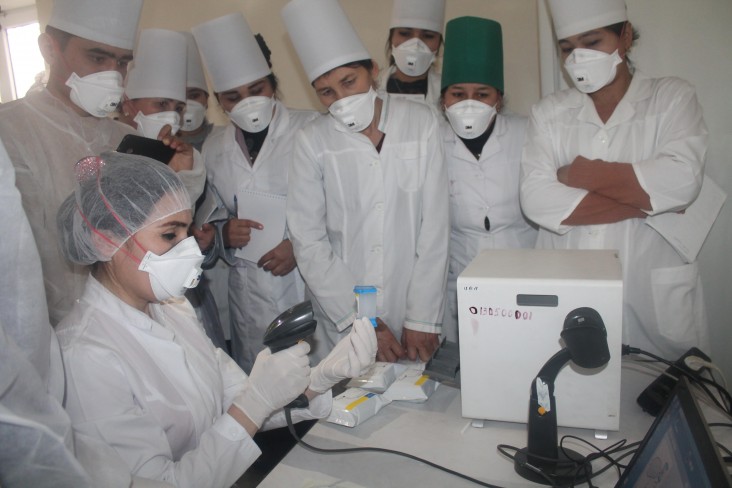Speeches Shim

Tuberculosis (TB) poses a significant threat to Uzbekistan’s public health system and to the country’s health and economic development. Uzbekistan has a very high TB burden. According to the World Health Organization (WHO) 2019 Global Tuberculosis (TB) Report, Uzbekistan is among the top 20 countries with the highest multi-drug resistant tuberculosis (MDR-TB) rate; one of the seven countries that have more than 100 cases of extensively drug-resistant tuberculosis (XDR-TB); and has the second highest XDR-TB mortality rate (26 percent), as well as a low treatment success rate of multi-drug resistant (57 percent) and extensively drug-resistant (49 percent) tuberculosis.
U.S. Government programs focus on increasing access to key services to help prevent transmission and contain expansion of TB. USAID supports activities that improve the delivery of prevention, care and treatment services for TB; enhance the capacity of institutions to address drug-resistant TB; and develop systems to strengthen the diagnosis of drug-resistant TB and improve infection control practices. USAID partners with health officials to expand use of patient-centered outpatient treatment approaches. USAID also helps health providers, communities, and patients to understand and address the treatment and care of TB and drug-resistant TB and provide social support to patients to complete the lengthy treatment.
Additionally, through the Establishing a Health Information System (HIS) for Uzbekistan program, USAID assists the Ministry of Health in implementing an electronic health management system to meet the information needs of different policy and management levels and to achieve better health system outcomes through improved measurement and monitoring of health system performance. In turn, it will further improve the results of USAID health sector assistance, including ongoing TB programs.
Results:
- In 2019, USAID provided infection control technical assistance to 11 TB hospitals in seven regions serving a population of 15 million people and expanded Quality Management Systems (QMS) to 50 TB laboratories and trained lab staff abroad and in-country on the best practices of diagnostic methods.
- To support the introduction of new anti-TB drugs and shorten treatment regimens, USAID supported the Ministry of Health in implementing an active drug safety monitoring (aDSM) system including aDSM national guidelines, standard operating procedures, and training modules.
- USAID advocated for the development of community-based support systems using local authorities’ funding for the most-in-need TB/multi-drug resistant-TB patients and their families. USAID also engaged local media to cover TB-related issues and raise public awareness of TB.
- The USAID-supported network of Centers of Excellence connected TB specialists with their colleagues across eight of Uzbekistan’s regions and abroad (the U.S., Germany, Switzerland, and Kazakhstan) to provide training and consultations remotely on the newest approaches of TB diagnosis and treatment, especially on complicated cases.
- USAID and the Navoi TB Center launched new video-controlled directly observed treatment, allowing the patient to take prescribed anti-TB medications at home instead of visiting the TB facilities daily, thus bringing the treatment and care closer to the patients and reducing stigma.


Comment
Make a general inquiry or suggest an improvement.